Unilever backs away from rainbow Golden Gaytime ice-cream after social media outrage
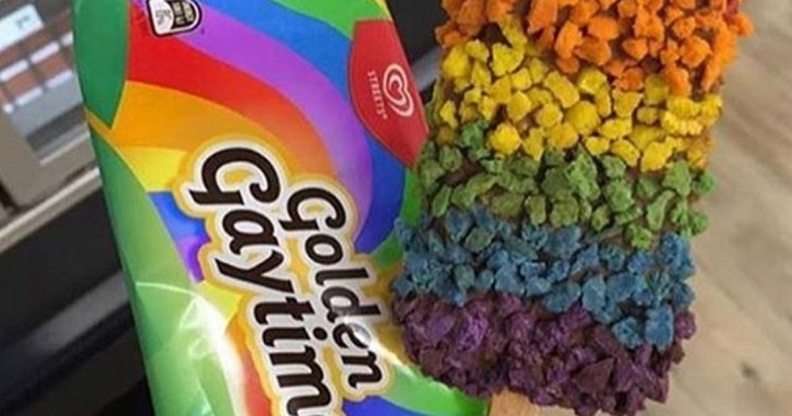
(Instagram/eatdrinkplaysyd)
Unilever has backed away from a rainbow ice-cream amid anti-LGBT pressure.
The huge corporation, which is worth more than £50 billion, suffered an online backlash after a customised version of its Golden Gaytime ice-cream went viral in Indonesia.
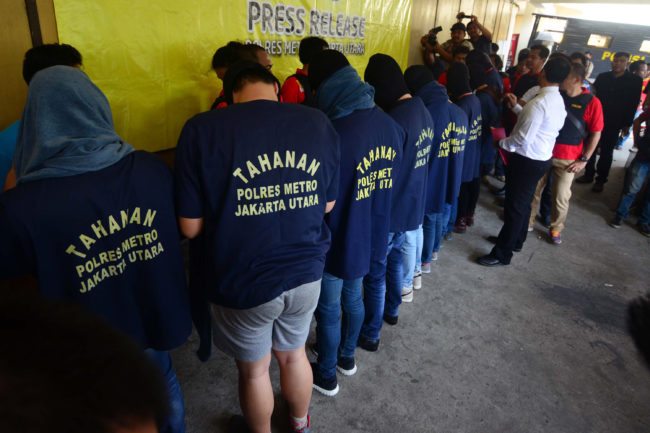
Men arrested in a recent raid stand in line during a press conference at a police station in Jakarta on May 22, 2017.
Indonesian police have detained 141 men who were allegedly holding a gay party at a sauna (Photo by FERNANDO/AFP/Getty Images)
The country cracked down on LGBT people last year, with the mass arrest of 141 men at a “gay sex party” just one of many attacks on the community.
So when a picture of the Golden Gaytime ice-cream covered in rainbow colours went viral online, many Indonesians reacted furiously.
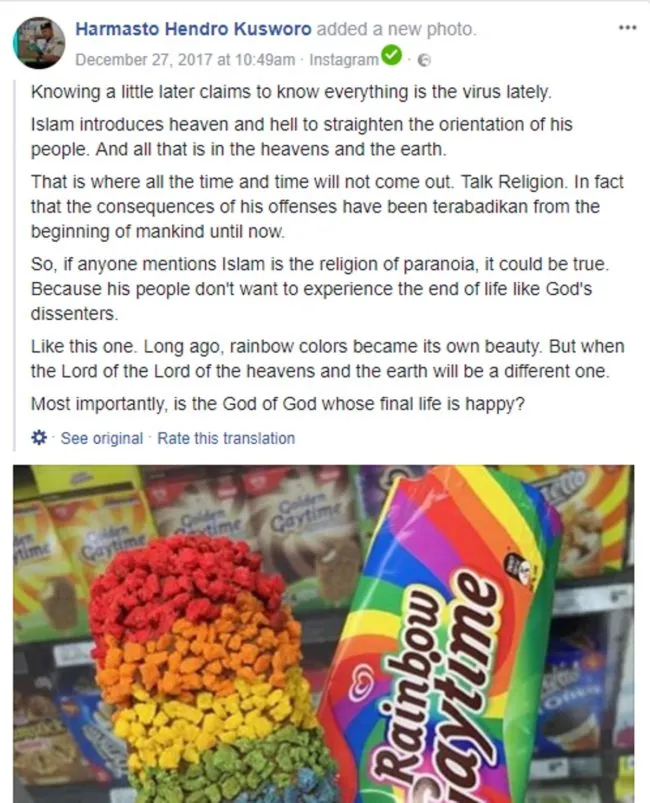
One example of the hateful reactions (Facebook/Harmasto.Hendro.Kusworo)
The special version of the sweet treat was made in March by Jesse James McElroy, for Sydney Mardi Gras in Australia, and has never been released widely.
It has certainly never been sold in Indonesia.
But that didn’t matter to commenters who were angry at the very idea of ice-cream with multiple colours, which makes about as much sense as homophobia.
In response to threats of a boycott, Unilever distanced itself from the custom creation and assured Indonesians that it respects the country’s “cultural and religious values”.
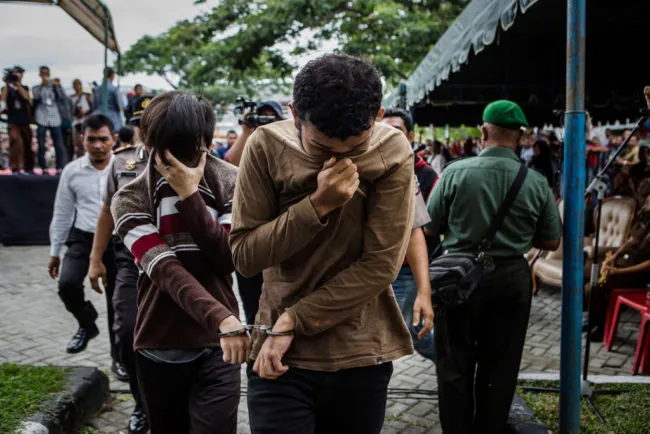
Gay men in Indonesia being led to be lashed 83 times (Getty)
The statement read: “The Gaytime ice cream mentioned in the social media are not the products of Wall’s Indonesia.
“Unilever has been in Indonesia for 84 years and we respect and upholds the cultural and religious values and norms in Indonesia.
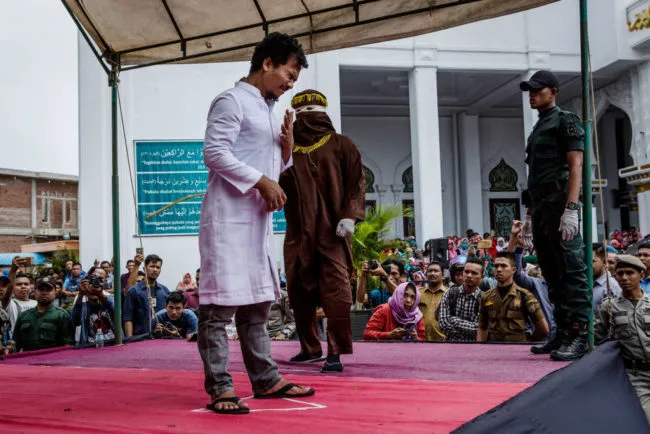
Indonesian gay man gets caned for having sex (Getty)
“We always ensure that our products, activities and campaigns in Indonesia are suitable for Indonesians from different backgrounds.”
These “norms” seemingly do not include support for LGBT rights, which was absent from the company’s statement.
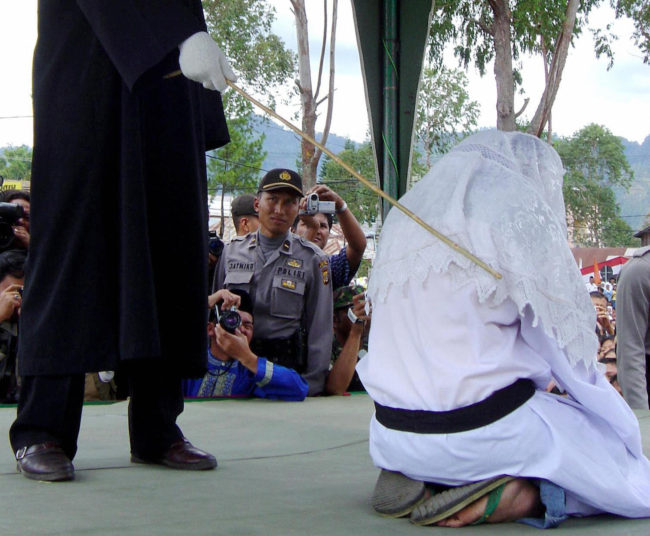
(Getty)
Last year in Indonesia, 58 people were arrested during a raid on a gay sauna.
Two men were given 83 lashes each as a legal punishment for having consensual sex in Aceh, where Shariah law is in effect and gay sex is illegal.
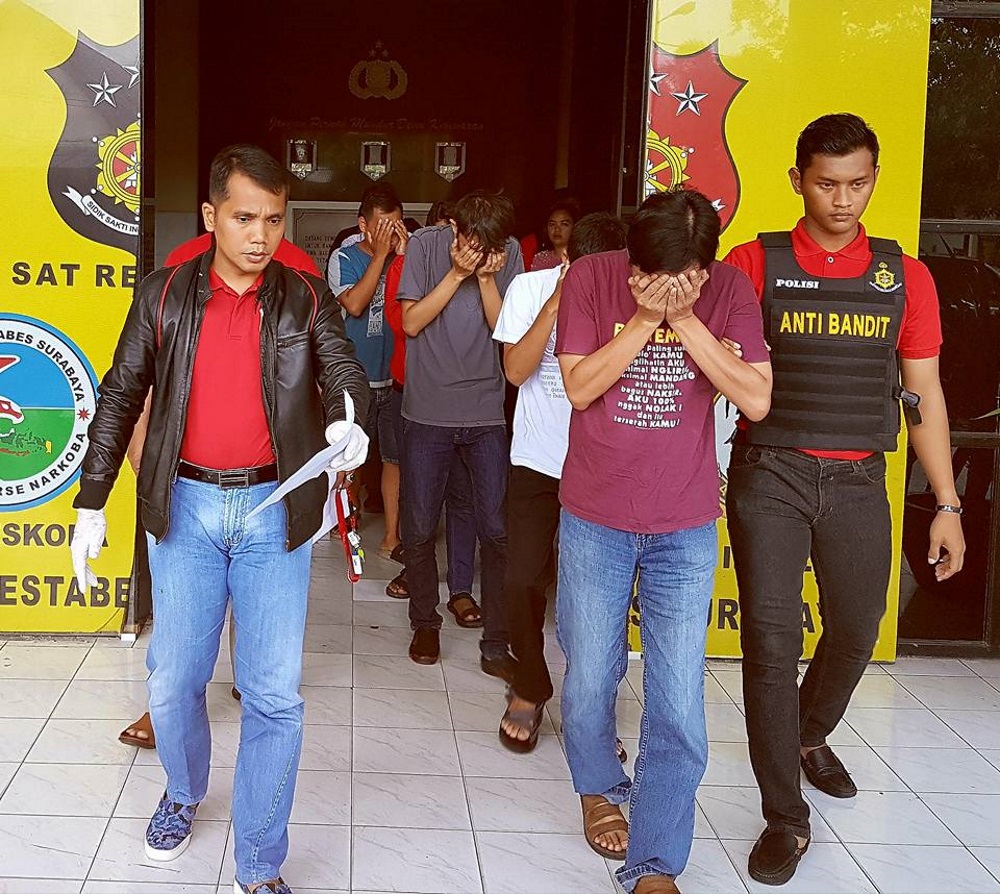
Men arrested for “gay sex party” (Getty)
The men were informed on by their neighbour, who took video footage.
The video showed vigilantes kicking, slapping and insulting the men.
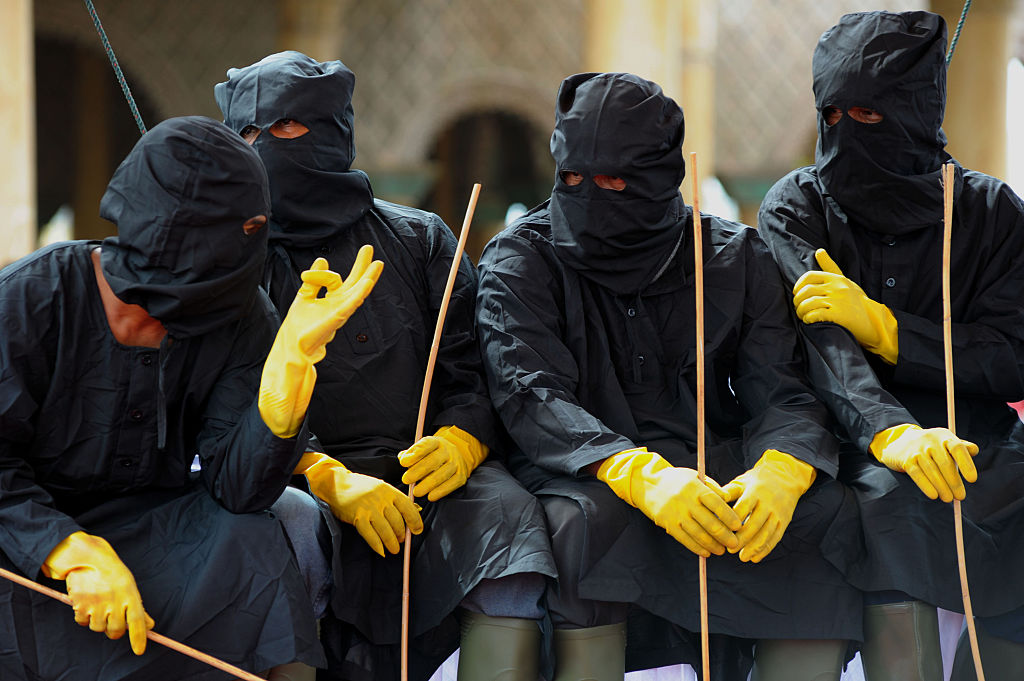
(Getty)
And in September, lawmakers gave the green light to a proposed law that would outlaw ‘LGBT behaviours’ on television.

